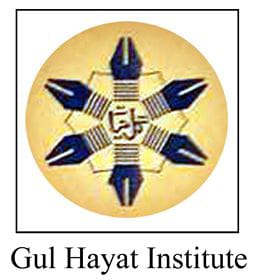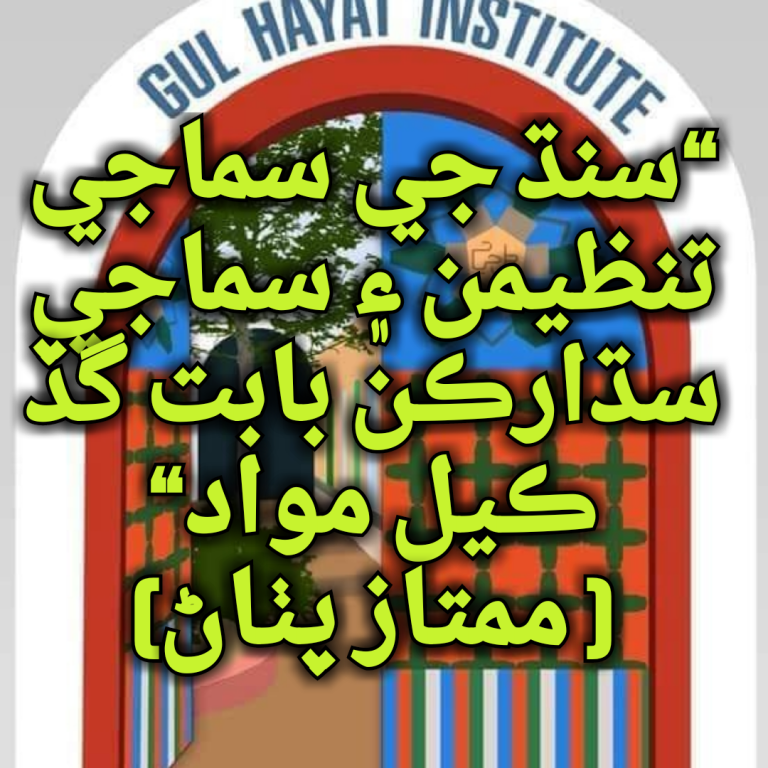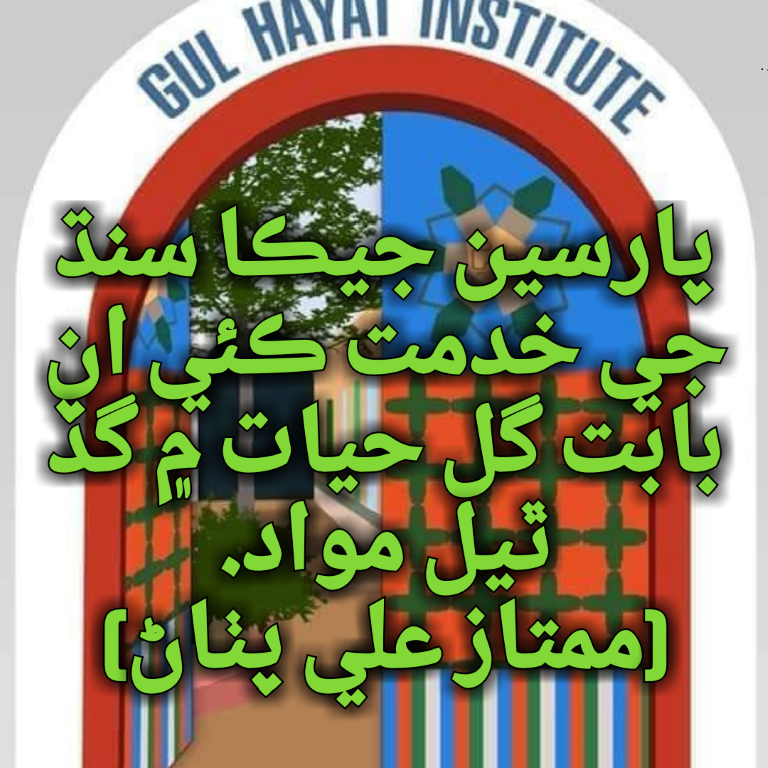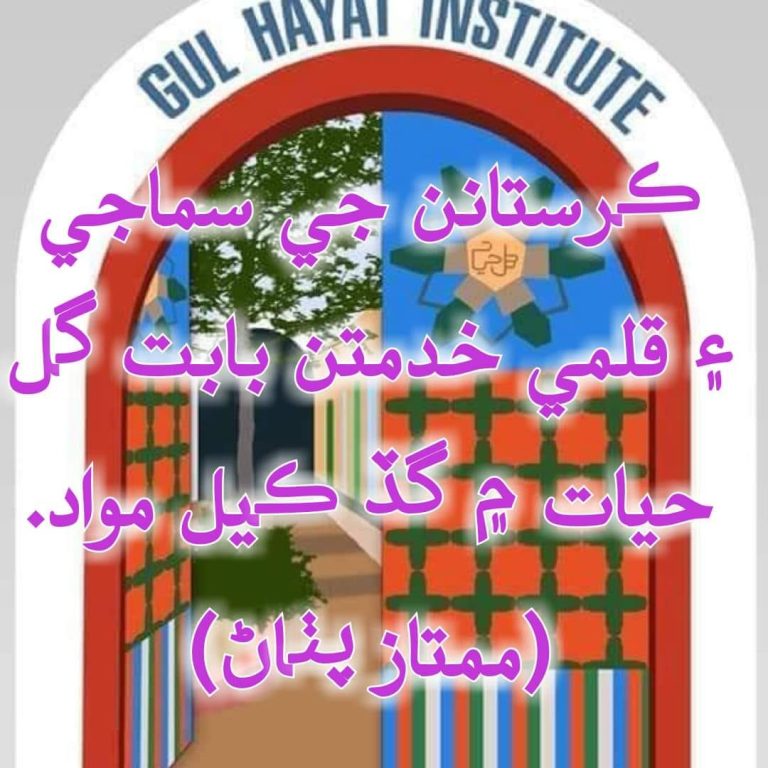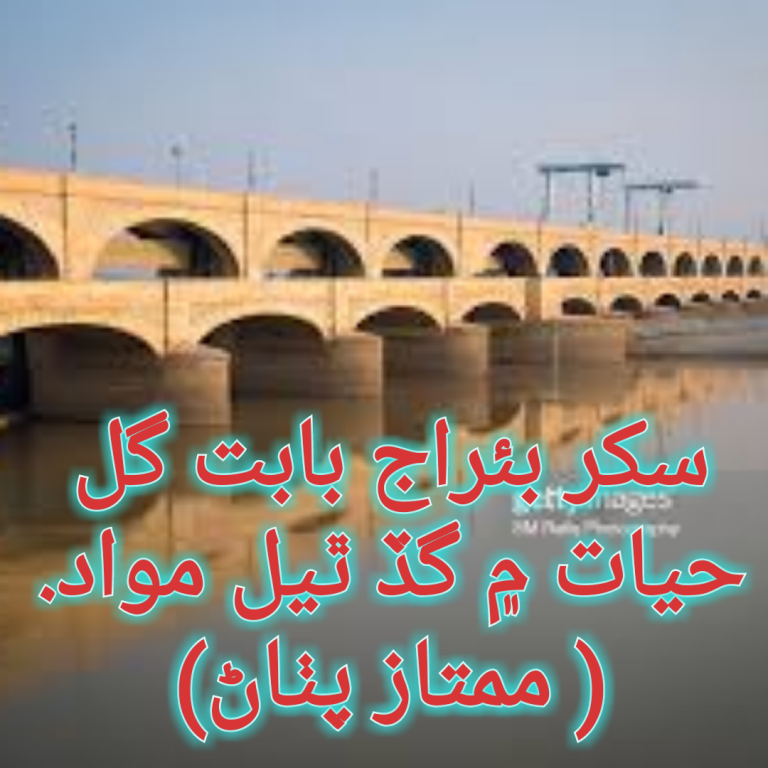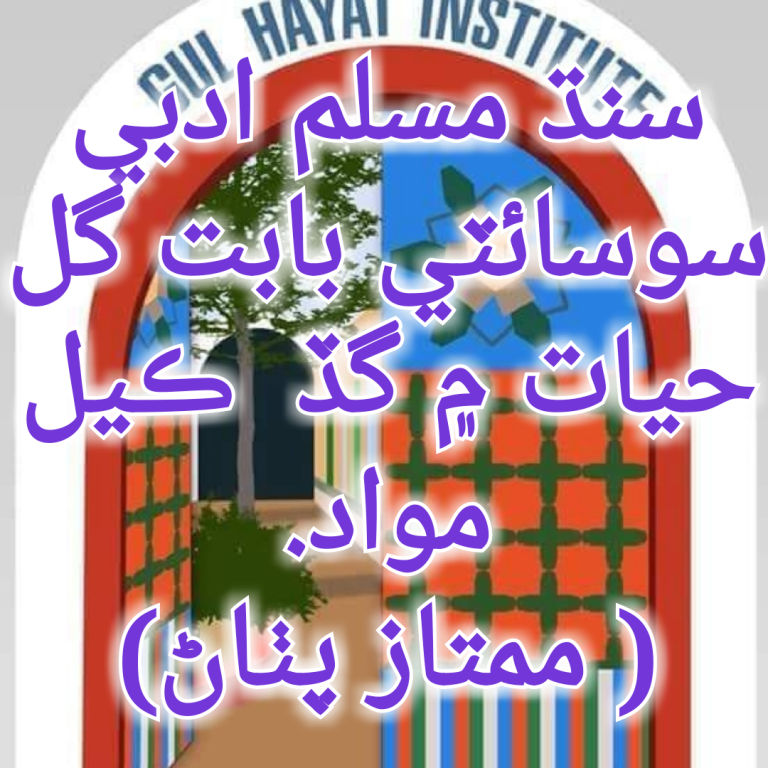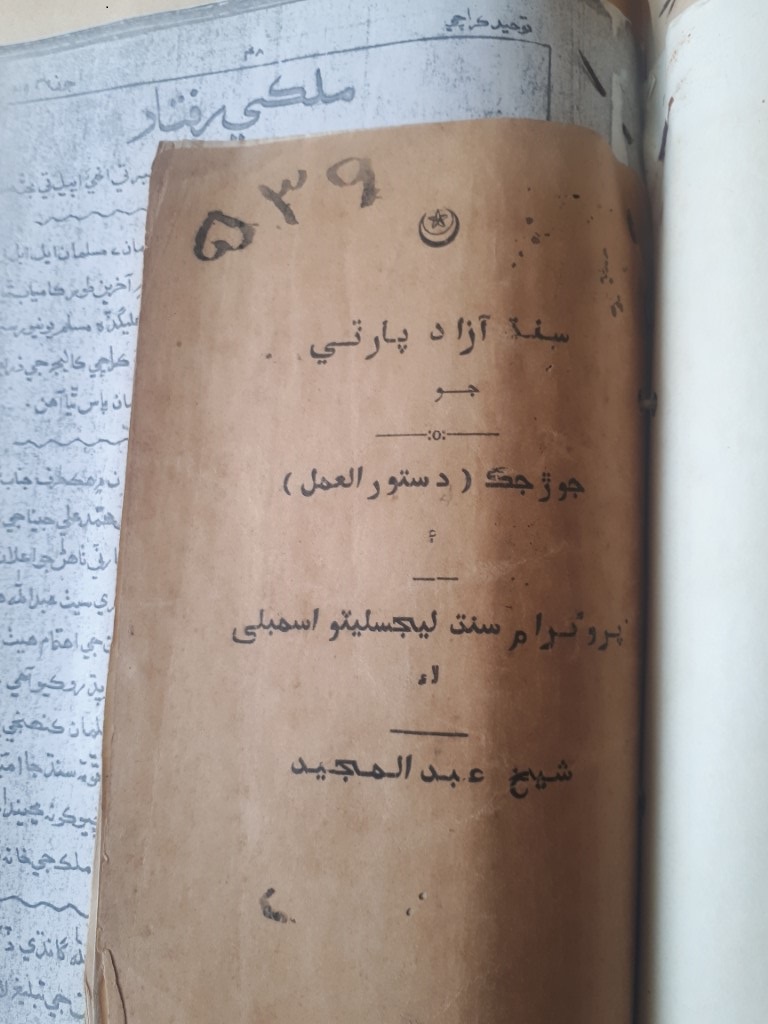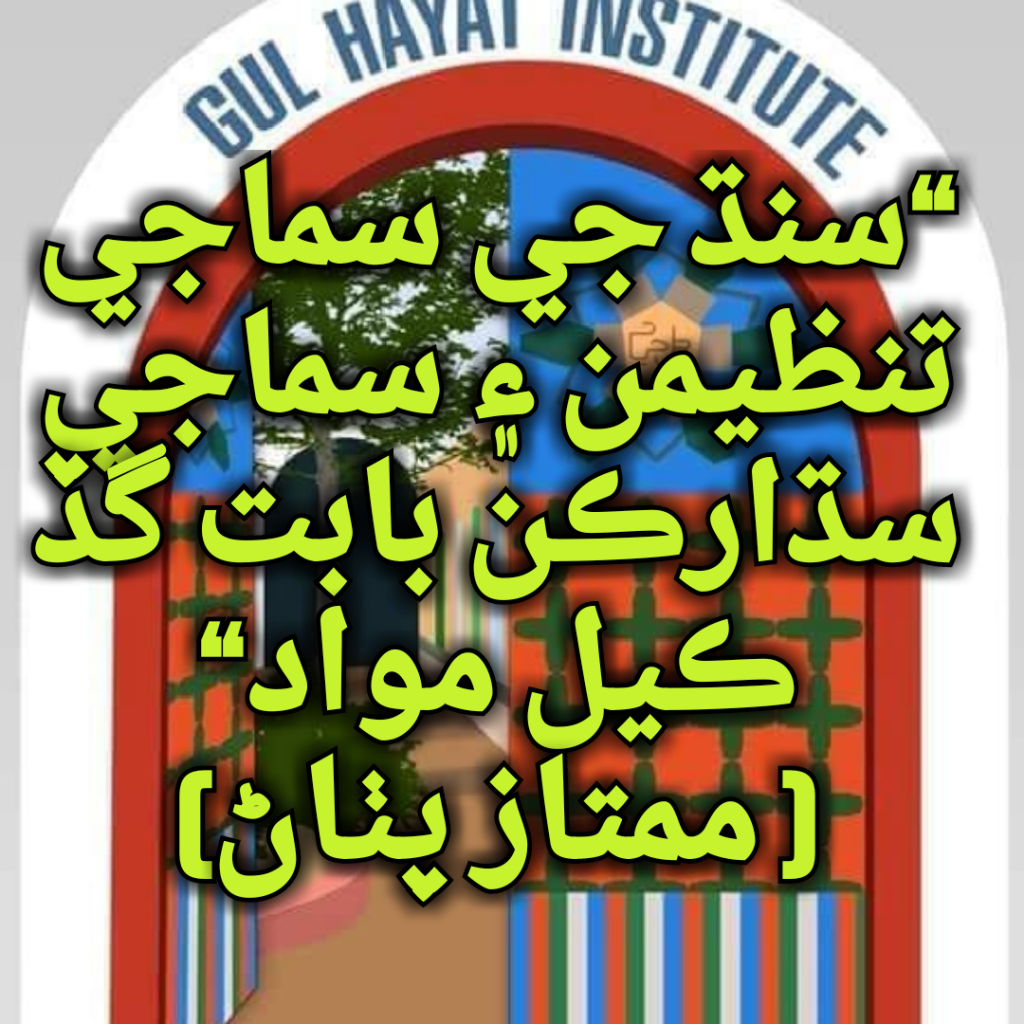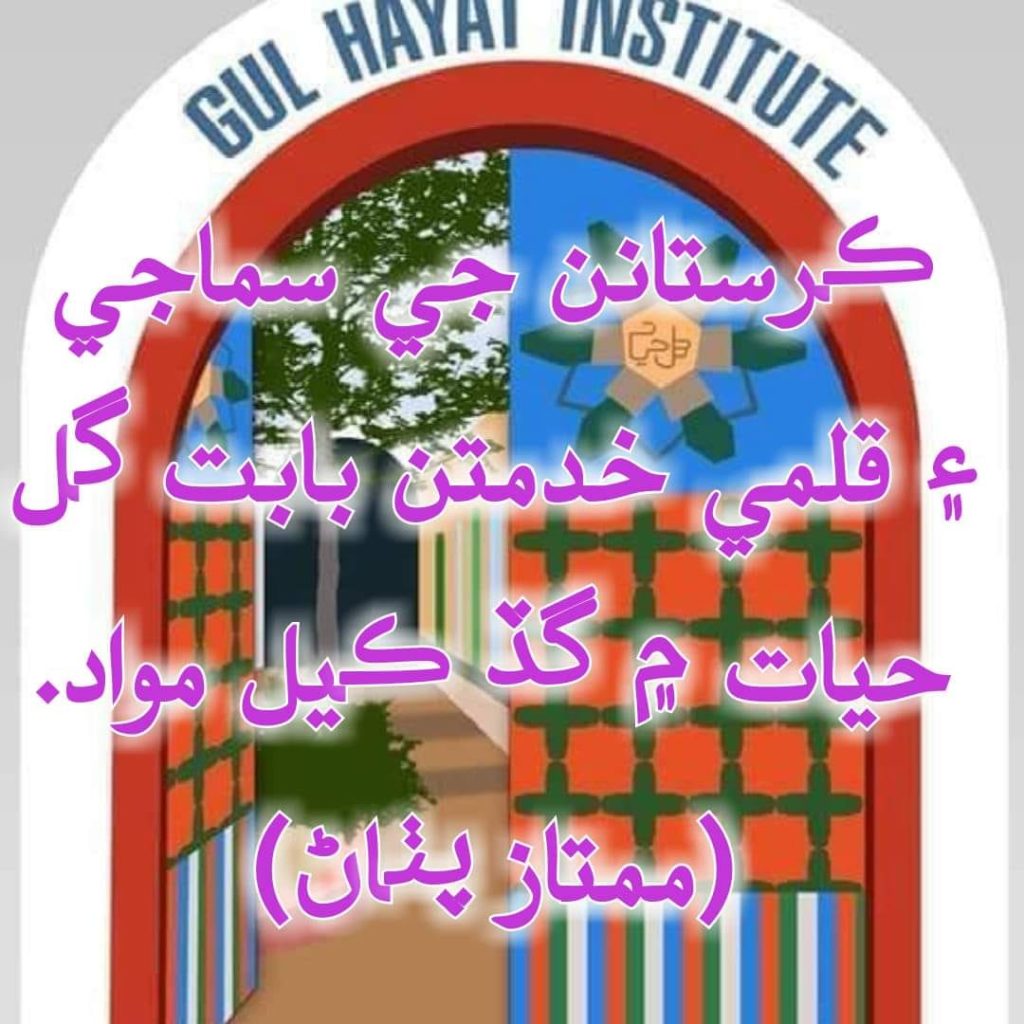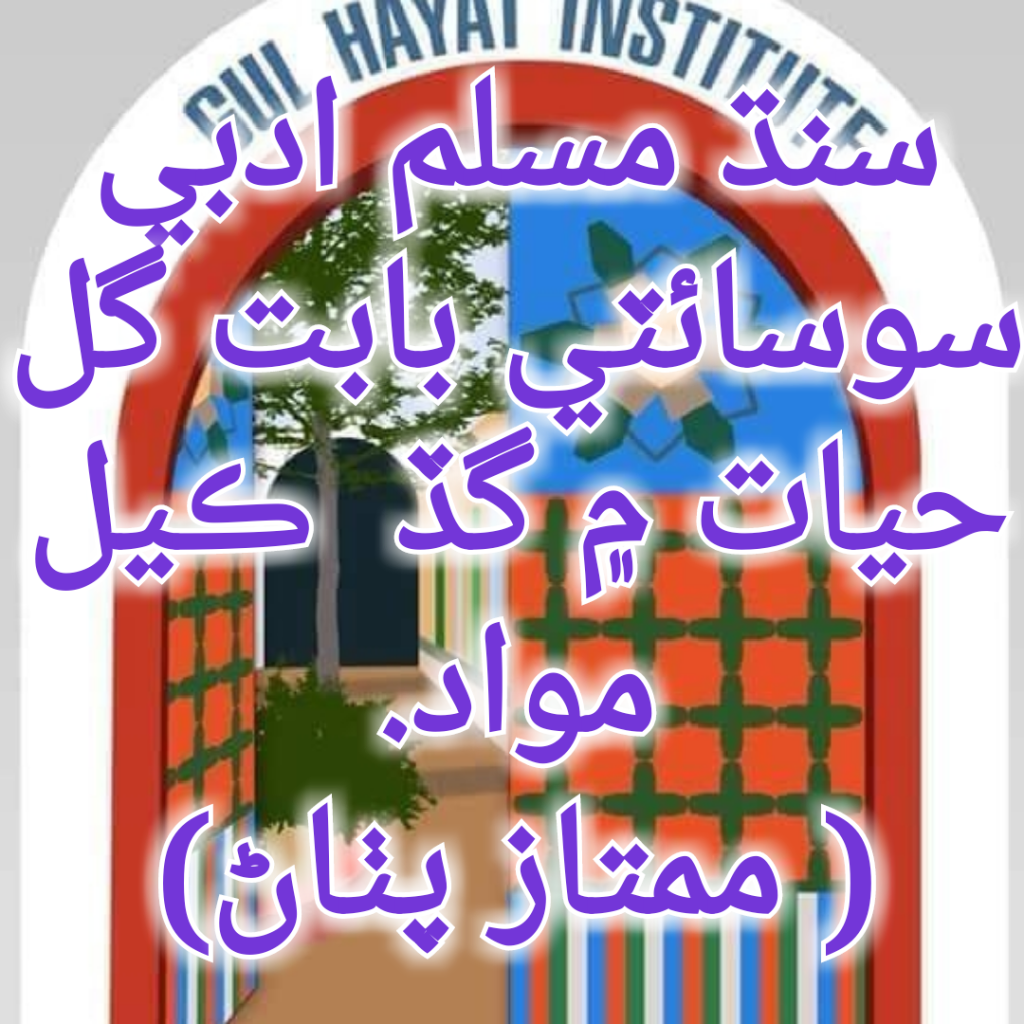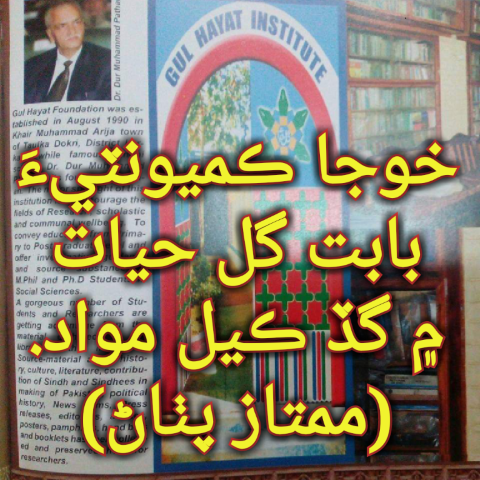PIR OF BHARCHOONDI DISCUSSED IN GOVERNMENT REPORTS AND SINDH LEGISLATIVE ASSEMBLRY IN 1940 & 1941. By. Dr. Dur Muhammad Pathan.
Facts are yet to befound but it has been stated that Pir of Bharchoondi took active part in themovement for the restoration of Masjid Manzilgah and his son was humiliated byHindus in Sukkur. The murder of Kanwar Bhagat took place soon after this ugly eventand Hindu Press gave the impression that all it was done in reaction of thehumiliation of the son of Pir of Bharchoondi.In this way, Pir became the symbolof anti-Hindus in the then Sukkur district. During Sukkur riots so manydeputations of Hindus from Sukkur, Rohri and Pano Aqil visted DistrictAdministration and demanded protection with special reference to any actionfrom Pir of Bharchoondi or his followers. From the middle of 1940, a wave oflawlessness to birth in this area.More violent crime against Hindus in SukkurDistrict were witnessed. Pir of Bhachoondi was arrested at Sukkur on the 8thof October, 1940, under the Bombay Regulation XXV of 1827 and was brought thesame day to Karachi. His son disappeared in Bahawalpur State The Governmentintended to arrest him also. His arrest occupied a prominent place in all the newspapers.The ‘Hindu’ remarks that the action of the Government was opportune, proper andjustified, as the Pir had hand in all the murders which were committed in theRohri Division. The ‘Sansar Samachar’ congratulates the Government upon the step. The ‘Qurbani’ is not satisfiedwith the arrest under the Regulation of 1827 and suggests that the Pir should be tried and awarded aheavy sentence. The ‘Shikarpur Gazette’ remarks that although the arrest is belated it has given considerablesatisfaction to the oppressed Hindus and has infused a new life into them. The ‘Hayat’states that the Pir has been arrested to please the Hindus and will be set freewhen Government wish to please the Muslims.The paper suggested that he shouldbe tried in an open court. The ‘Bab-ul-Islam’ and ‘Paigham-Sulh’ also write inthe same strain. The ‘Al-Wahid’ however, remarks that the internment of the Pir of Bhachoondi would be futile so long as there is no changeof heart among the Hindus and Muslims. The Hindu press commented at length over themurders which were committed in the Rohri Sub-Division during last fortnight. On 5thNovember four dacoits attacked the village of Sumar, killed one Hindu andinjured four others. events of same nature took place in the length and breadthof Sukkur District. Rumours were currentin Karachi that large scale trouble involving raids from Baluchistan andBahawalpur by the followers of the Pir of Bharchoondi were to be concertedduring the Ramzan Eid gathering and theDistrict Magistrates of Sukkur, Larkano, and upper Sindh Frontier were warnedto keep a close watch on the sitation and take the maximum precautions. TheEid, however, passed off peacefully. The Report/Letter of 6th of November, 1940 by the Governor of Sindh to the Viceroy ofIndia to apprise him of the Sindh situation, also includes this subject. Itthrows light on un-told aspects of the story. He writes: “ The actual arrestwas easily effected, but we have not succeeded yet in capyuring his son, who isreally the more active agent for evil. The trouble is that not only is thecountry extremely difficult, but escape is easy into Bahawalpur and also on thesouth-east towards Rajputana. We have been told at different times that his son has been in hiding in Jaipur andJaisalmir, but we have no confirmation of that. The Bahawalpur authorities hadno desire to shelter either Pir or his son and in fact they have expressedthemselves as ready to co-operate. The Muslim League under the guidance of Sir Abdullah Haroonand Pir Ali Muhammad Shah Rashdi first took up the line that there was no caseof any sort against the Pir and he should not have been arrested. As, however,the series of murders on very much the same pattern continued after the arrest andit becomes increasingly evident that these were being carried out by the adherents of the Pir, theauthorities of the Muslim League found themselves some what embarrassed. Soalso did two of my Ministers, namely the Chief Minister (Mir Bandah Ali) and G,M.Syed, who had shown themselves undulysympathetic towards the Pir of Bharchoondi and had tried to get me to take intoconsideration a proposal that he should be released from jail but required tolive in a house in Karachi. I told them very frankly that until I had got thePir’s son in jail and until I was satisfied that we had got on top of thistrouble, I would not give any consideration to any proposal for releasing Pirfrom his present custody. Three of my Ministers went to visit the Pir in jailand first I heard of it was after the visit had taken place:; but I do not think I could have taken objectionto their paying a visit, because it was easy for them to say that they wereanxious to induce the Pir to realize the folly and wickedness of his ways andexercise his undoubtedly wide influence for the restoration of peace.Mr.G.M.Syed, however, has created a very bad impression among the Hindus by hisaction in taking to the jail a present of fruit and sweets for the Pir. The next move came three or four days ago from Sir AbdullahHaroon, who now appears to have reached the conclusion that the Pir and his sonand their followers are responsible for these outrages on Hindus and moreoverthat if these outrage continue it would be difficult for the Muslim LeagueMinistry to servive. He was alliowed two interviews with the Pir and claimed to be convinced thatthe Pir was prepared to co-operate in stopping the murders. My Ministers agreedwith him and we got as far as bringing down to Karachi one of Pir’sKhalifas who was under preventive arrestunder the Sindh Frontier Regulation. Theidea underlying this plan of the Muslim League was that Pir should give anautographed letter to each of three of his Khalifas at present under detentionand that Sir Haji Abdullah Haroon himself should proceed to Sukkur and offersecurity to the District Magistrate, Sukkur, for the good behaviour of thesethree persons if released. On release, these persons were to proceed to threecentres,(1) the Pir’s own home, (2) in the Jacobabad District and (3) inBaluchistan, and convey the message of the Pir contained in the autogaphedletter that the murders were to cease. One of the Khalifas was produced hereyesterday, but the arrangement broke down because Sir Haji Abdullah Haroonannounced that he was unable to leave Karachi for Sukkur owing to his agitationover an incident in a mosque which had taken place the night before. Hesubsequently sent a second letter giving further reasons why he was unable to leave Karachi, to effectthat only one of the Pir’s Khalifas had been brought down and that he would notbe sufficient for that purpose. Actually, it is pretty clearthat he decided that he cannot carry on the terms of his offer and that he doesnot wish to be in any way responsible……………(The letter is lengthy, hence threeparas are left because of less importance)……… That is all that I can say at present. I have it in mind ifany further trouble occurs, to convey a message to Pir of Bharchoondi that heis running the risk of being transferred to the Andmans or some equallyunpleasant place. I trust that there may be no need to make any such proposalto you and I am having tha law on the subject examined.” Pirs of Bhachoodi, their political and religious strategies/policesis very important topic to be studied with care and research methodologies and a lot of material is available on topicin newspapers, official reports and other sources. I have touched the subjectso as to invite attention of lovers of Sindh history with request that it is needof hour to revisit, revise and recompile our history. What we are being toldabout our past is not true. We need and deserve truth. In 1941 son of Pir of Bharchoodi was arrested in Karachi. The matter release and arrests was discussed in the Sindh Legislative Assembly. It will be matter of interest for young generation of our time to know that who moved Adjornment Motion in the Assembly and who participated in the debate. Therefore, relevant portions from the proceedings are reproduced as under: 26th February, 1941 Adjournment Motion- Release of Pir of Bharchundi. Now come the adjournment motions. I will first take up adjournment motion No. 3 of the honorable member Mr. Khoso. The adjournment motion reads as follows:- “This House do now adjourn to discuss a definite matter of urgent public importance and of recent occurrence, namely, the failure of Government to effect immediate release of Pir Saheb of Bharchundi who has been detaind under the Bombay Regulation XXV of 1827.” The honorable member should now satisfy me that this is a matter of recent occurrence because Pir Saheb was arrested and detaind in October 1940 and so it cannot be either a matter of recent occurrence or urgent. Mr. M. A. Khoso: My submission, Sir, Is this. The matter reffered to by me in the motion is urgent and it does not lose its urgency because the Pir Saheb has been in jail for a number of months. On a previous occasion your honour has ruled that if the thing continues then………… The Honorable the Speaker: Will the honorable member quote the ruling? MR.M.A.KHOSO: No, Sir, I have not got the ruling before me, but I will just refer to the ruling of the Speaker of the Central Assembly upon which you had relied in your ruling. There the Speaker said that the adjournment motion moved did not refer to a single specific matter but referred to a number of incidents which had taken place in the Frontier Provinces. The Honorable the Speaker: Let the honorable member read the adjournment motion in question. Mr. M. A. Khoso: Yes, Sir, I refer to page 21 of rulings from the chair, where the following appears:- “Honorable members know that a motion for adjournment of the House can only be allowed for the purpose of discussing a definite matter of urgent public importance. Such a motion must be restricted to a single specific matter of recent occurrence and urgent nature. I do not see any reason why none of these incidents of recent occurrence was specifically put down in the notice of the motion of adjournment.” Then at page 22, he says:- “Not a single definite measure of a repressive character has been mentioned in this motion.” I have here definitely referred to one single specific incident, namely, the detention of Pir Saheb of Bharchundi. Because a number of months…….. The Honorable the Speaker: Today it is 26th of February 1941. Mr. M. A. Khoso: Because a number of months have elapsed since his arrest, the fact remains that he is still in jail and Government have failed to effect his release. I am referring to the failure of the Government to effect his release. Now, the matter is adjourned because it concerns the liberty of an individual who is not only respected and revered but actually followed by thousands of his disciples belonging not only this Province but outside also. Mr. N. A Bechar: Are you one of them? Mr. M. A. Khoso: Yes, I am one of those who respect him. The Honorable Khan Bahadur M. A Khuhro: Are you his follower? Mr. M. A. Khoso: Yes, I am. Now, Sir, this is a matter which concerns thousands, nay lakhs of people belonging to this Province. Not only his followers but even other Muslims have expressed their anxiety. People from constituency from which I come have sent me telegrams and resolutions and have waited on deputations on the honorable the Premier and practically every Minister. Now, Sir, before proceeding further with this matter, I would refer you to May’s Parliamentary Practice, page 248, where it is said that motions have been ruled out of order when it appeared that the administrative responsibility of the Government was not involved or there had not been any departure from the ordinary administration of law. My submission is that there has been a departure from the ordinary administration of law because the law applied in this case is an antiquated law which has never been put into practice and perhaps in Sindh this is the first time when a person has been arrested and detained, after the introduction of Provincial Autonomy, under this antiquated piece of regulation law. The Honorable the Speaker: Under what regulation has he been detained? Mr. M. A. Khoso: Regulation XXV of 1827. I would refer you, Sir, to page 33 of rulings of the Central Assembly. There an adjourning motion was tabled regarding the externment of Maharaja of Nabha. The Speaker said: “I know that during the last year two years attempts have been made several times to riase a debate on the Nabha affair in some form or the other and I have always resolved such debates.” Now, Sir, it was disallowed not because the incident was a continuing incident but on other grounds. The Honorable the Speaker: The honorable Member is quoting rulings against himself. (Laughter.) Mr. M. A Khoso: There the Speaker held that the adjournment motion must not deal with a matter between the Government and the State and not because the matter was continuous. There the matter raised in the adjournment motion was an issue between the Governor General in Council and the State. I will read out the whole ruling. The Honorable the Speaker: I have understood it. It does not help the honorable Member, I can assure him. I will not be convinced therefore he should go further. There the matter was between the Government and a State; therefore it is quite a distinct question. That analogy does not apply here. He should proceed further. Mr. M. A. Khoso: Sir, the first thing about it is that the civil liberties of the gentlemen have been attacked under an antiquated law. Speaker’s Ruling The Honorable the Speaker: Now I would like to remind the honorable member Mr. Khoso and Honorable members of the House that honorable member Mr. Khoso had moved an exactly similar motion on 28th November 1940. It was as follows:- “This Assembly do not adjourn to discuss a definite matter of adjourn public importance and of recent occurrence, namely the arrest and confinement till today of Pir Saheb of Bharchundi.” Now the same type of adjournment motion has been reproduced and repeated, believing that this can have the same effect as a continuous offence under the Indian Penal Code. I don’t think it will have the same effect as that. The honorable member believes that the Pir Saheb’s detention every day is a specific matter of urgent public importance on which an adjournment motion can be moved and Government censured. As the Pir of Bharchundi was arrested and detained since 8th October, which means round-about 142 days, therefore according to honorable member Mr. Khoso there are so many specific matters. It means they are combined into one motion. The honorable member knows that one of the ingredients of an adjournment motion is that it must raise one definite issue. Now there will be 142 definite issues compressed into one adjournment motion. It will be incongruous and absolutely irrelevant to the rules and the procedure so far followed in practice. Of course I sympathize with him and I quite appreciate the sentiments underlying this motion and the sentiments of his constituency which he expressed, but I cannot help him in this because I am preacher of the law and the rules. If I allow the motion of this kind now, It will form precedent and then every matter of this nature or a different kind of nature can be repeated from time to time and there will be no finality. Therefore he can seek his remedy somewhere else. So far as this adjournment motion is concerned, I am only sorry that I shall have to rule it out of order.
5th March, 1941 Release of Pir of Bhurchundi—Statement by the Honorable Premier on— Mr. M. H. Gazdar: Sir, I want some information from the Honorable Premier. I have heard that the Government proposes to release the Pir of Bhurchundi. I want to know whether the premier has any information to give, or any statement to make in this connection. The Honorable Mir Bandehali Khan Talpur: I have nothing to say unless the honorable Member wants to ask some question on the subject. The Honorable the Speaker: The honorable member wants to know whether the government are going to release the Pir of Bhurchundi. The Honorable Mir Bandehali Khan Talpur: I have tendered my constitutional advice to his Excellency the Governor that the time has come when the conditions in Sindh have changed for the better and so the Pir of Bharchundi may be released. Khan Bhadur A. K. Gabol: May I know from the Honorable the Leader of the House whether it has personal opinion that he has tendered to His Excellency? The Honorable the Speaker: His constitutional advice, in his capacity as a Minister of Government, for the Pir to be released. Khan Bahadur A. K. Gabol: I want to know if under the Act, the Honorable Premier has the authority to release any prisoner. The Honorable the Speaker: That is a legal Point which needs not to be discussed here. Khan Bahadur A. K. Gabol: Sir, It is an important point. The premier has made a statement that he is requesting or advising His Excellency to release the Pir of Bharchundi. That means he is leaving the whole matter to His Excellency the Governor. He has sent the whole papers to him. If therefore the Pir of Bharchundi is not released naturally His Excellency the Governor will be blamed. The Honorable the Speaker: This is a constitutional matter to which the honorable member need not refer now. It is a matter between His Excellency the Governor and the Honorable Premier. As a matter of fact The Honorable Minister can tender any advice he likes to His Excellency and orders will be issued in His Excellency’s name. Mr. M. A. Khoso: I want to know when the Honorable Minister tendered his constitutional advice. The Honorable Mir Bandehali Khan Talpur: Eight or Ten days ago. Mr. Ghanshyam Jethanand: I want to know whether the advice was given by the Premier by himself or with the concurrence of other Ministers also. The Honorable the Speaker: He said on his own account. He is Minister for Law and Order. Mr. Ghanshyan Jethanand: I ask the question because I understaned there are several matters in which the Minister act together. The Honorable the Speaker: Has he acted in his capacity as Minister for Law and Order or on the behalf of the Whole Government? The Honorable Mir Bandehali Khan Talpur: I am not answering that question. The Honorable the Speaker: Now let us go over to other business.
6th March, 1941 Adjournment Motions I have received two adjournment motions from the honorable member Mr. Muhammad Amin Khoso, but have had no time to look into them and so I shall consider them this evening and then give my ruling tomorrow. Now the Demands for Grants. Adjournment of the House- Discussion on.— Mr. M.A. Khoso: Yesterday you had promised to see his Excellency the Governor today to adjourn for tomorrow. The Honorable the Speaker: I was granted an interview by his Excellency the Governor this morning and I placed before him the view of the majority of this House that they were opposed to the postponement of the proceedings of the House today and tomorrow, of course, I could not adjourn. I conveyed this information to His Excellency. He also constitutionally could not interfere in the situation. It is of course for the Speaker to postpone or adjourn any proceedings but I made my position very clear to him that I am entirely in the hands of the majority and as I found in overwhelming majority in favor of the proceedings continuing, I can not help unless they have changed their minds. If the majority of the House feel inclined to assist me to adjourn the House I am prepared to adjourn it even now. Mr. R. K Sidhwa: Not at all, Sir. Mr. M.A Khoso: That may be a convention of the British Parliament, but the circumstances here are very extraordinary. Let us not in the heat of moment forget that we are doing something which is not consistent with the dignity of this Honorable House. The present Cabinet continues to be the Cabinet and the Leader of the House continues to be the Leader of the House. He has made an ordinary request and I have read out to you the ruling showing the convention of the houses of Parliament. Your honor had based your ruling the other day on the analogy of the King’s interference. But here there is no question of the King’s interference. Here the representative of one side of the House- as a matter of fact the Leader of the House- Makes an ordinary request and I think it is the height of discourtesy on our part if we do not accept his ordinary request. The Honorable the Speaker: I hope the appeal made by the honorable member will go home to this side of the House, but they do not seem to be in a mood to respond to that appeal. I am entirely in the hands of the House and I am prepared to follow the advice tendered by the honorable member; but if the overwhelming majority is opposed to it; I cannot help it. Mr. M.A. Khoso: It is not the question of the majority; it is for the honorable the Leader of the House to show sufficient reasons for adjournment.
8th March, 1948 Adjournment Motion- Detention of Pir of Bhurchundi The Honourable, The Speaker: Now, Two Adjournment Motions were given notice of by honourable member Mr. Muhammad Amin Khoso on 6th March. Then Government having resigned, I think it is not necessary for me to take the Adjournment Motions with regard to the detention of the Pir of Bhurchundi. Adjournment Motion- Arrest of Mian Abdul Karim Son of Pir of Bhurchundi Then the same honourable Member give notice of one Adjournment Motion yesterday, which reads as follows:- “That this Assembly do now Adjourn to discuss a definite matter of urgent public importance and of recent occurrence, namely, the arrest of Mian Abdul Karim Son of Pir oaf Bhurchundi with 10 followers at Karachi to-day.”. Now, I should like the honourable member to conveyance me whether has been any breach of law in arresting any body, whether there has been any deviation from the ordinary law of the land, before I can admit the Motion. Mr. M. A. Khoso: Sir, you are aware that a mistake was made by the Police Officers, in that the younger son of the Pir Sahib of Bhurchundi was arrested. The warrant was issued against his Elder Son. The younger son was arrested with 10 followers, some of whom are big zameendars. After 3 or 4 hours running about here and there, the police realized their mistake and released the Mian Sahib. I submit, Sir, that if the police were to commit such sort of mistakes, no body knows who might next have to suffer at the hands of the police. I submit, Sir, This is a matter of urgent public importance……. The Honorable The Speaker: How has there been deviation from the ordinary law of the land, which gives a grievance to the honorable Member to bring forward a censure motion? Mr. M. A. Khoso: I say, Sir, That an innocent man again whom there is nothing on record either with the police or with the magistrate was arrested. The Honorable The Speaker: for the purposes of admissibility I have to look to the form of the adjournment motion also. He says:- “….. the arrest of Mian Abdul Karim son of Pir of Bhurchundi with 10 followers….”. Now anybody could be arrested. But the point is, has he been illegally arrested or wrongfully confined? Mr. M. A. Khoso: Yes, Sir, That is my submission. The honorable The Speaker: Then the honorable member has not put it in the adjournment motion. Mr. M. A. Khoso: That does not make any deference. The Honorable The Speaker: That makes a lot of deference. Mr. M. A. Khoso: That fact is that The Mian Sahib was illegally arrested and wrongfully confined. That is why I am going to censure the Government. It is a matter of public importance and it is a deviation from the ordinary law of the land. The Honorable The Speaker: I do not dispute that the matter is of Public Importance. I am looking to the form of the Adjournment Motion. I am telling the Honorable Member he did not definitely point out in the Motion that the Mian Sahib was illegally arrested and wrongfully confined. Mr. M. A. Khoso: It is implied, Sir. The Honorable The Speaker: That should have been started. The Honorable the Minister for Law and Order may have something to say now. The Honorable Sir Ghulam Hussain Hidayatullah: Sir, As you read out the Adjournment Motion, there is nothing specific in it. The Honorable Member does not say that the Mian Sahib was arrested wrongfully or against the provisions of the Law. In his speech he says, it was a case of mistaken identity. That knocks the button out of the Adjournment Motion. He does not attribute any dishonest intension to the police. I have taken down his words: “Through mistake”. That is what he said when he spoke. Therefore he has no grievance at all. Mr. M. H. Gazdar: Sir, I admit that the form of the Motion is very defective. The honorable Member should have said: “Illegally arrested and wrongfully confined”. But the fact remains that a very respectable man with a very large following was handcuffed, arrested, taken to Manora, Confined into a lock-up in spite of protests, and he was later on released when the police found out there mistake. The Honorable The Speaker: Was he released? Mr. M.H. Gazdar: Yes, Sir, immediately after the mistake was realized. Now, I want to know whether the Government are prepared to take action against such blundering policeman. The Honorable Khan Bahadur Allah Bakhsh: The Government reply is that there was no arrest as such. The honorable member admits it was a case of mistake. But those words are not in the adjournment motion. All that the honorable member refers to in the motion is the arrest. Shaik Abdul Majid: May I understand that the Honorable the Leader of the House has said just now, that there was no arrest at all? If he has said that, when it is a very grave statement, because there must be something on record if the man has been arrested in the sense that the arrest is meant, and I do not know how to ascertain this fact— whether the man was really arrested or not. But then I only want to know whether the Honorable the Leader of the House will agree that two members of this House— one from the Opposition and one He himself— may make an inquiry into this matter, whether Mian Abdul Karim was really arrested or not. It is a matter known throughout the City that he was arrested by the Police, hand cuffed, and taken to the Police Lock-up. I do not know the fact of his having been handcuffed. But that is what one honorable friend has said from the flour of this Assembly. What we are entitled to know is what has actually taken place. Either the honorable the Leader of the House or the Honorable Minister-in-charge of Law and Order or the Honorable Minister who is sitting between the two and who perhaps knows better than the two may tell us…. The Honorable Sir Ghulam Hussain Hidayatullah: Sir, wil you please ask him to stop that nonsense? Shaikh Abdul Majid: Sir, I take strong objection to that. The Honorable Minister-in-charge of Law and Order is speaking nonsense. The Honorable The Speaker: Order, order. I think there is an end of it. We are entering into the merits of the question. There are my definite rulings on the point before that if an adjournment motion is defective; it is ruled out of order. In the form in which it appears, the present adjournment motion is defective. Therefore I rule it out of order. I have received another adjournment motion- from honorable member Mr. Gazdar. Mr. M. H. Gazdar: I have already notified, Sir, that I do not want to move it. The Honorable the Speaker: Alright. Now we go to the ordinary business of the day. Shaikh Abdul Majid: Sir, I want to know, before you proceed further, whether Honorable Minister-in-charge of Law and Order had any right to say that what I spoke was nonsense without ascending to my humble request that the real facts in connection with the arrest of Pir of Bhurchundi’s son should be placed before the House. Without acquitting the House with those facts, he says that what I spoke was nonsense. I ask whether what I spoke was nonsense or what he said was nonsense. The Honorable the Speaker: I thought he wanted to close the chapter and therefore he sat down, and I proceeded with my ruling on the adjournment motion. The Honorable Minister-in-charge of Law and Order has got a long history and tradition as a Parliamentarian. I was busy reading the adjournment motion and thinking about it. I did not actually catch his words. I only thought some heat was being generated. Mr. M. H. Gazdar: Sir you have not decided whether the word “Nonsense” is Parliamentary or not for our future guidance? The Honorable the Speaker: Of course it is unparliamentarily.
2nd April 1941 Letter from Pir of Bharchundi to the District Magistrate of Sukkur. [1]Mr Ghanshyam Jethanand: Will the Honorable Minister-in-charge be please to stay— (a) Whether it is a fact that Pir of Bharchundi wrote a letter to the District Magistrate of Sukkur that some of his followers had gone out of the control and that some of his followers had gone out his control and that there was danger from them? If yes, when was this letter written and what was its exact contents? If not, whether any other letter has been addressed by the Pir of Bharchundi to the District Magistrate of Sukkur? If yes, what is the nature of its contents? (b) Whether it is a fact that the District Magistrate took no immediate action on the letter of the Pir of Bharchundi? If it is so, why no immediate action was taken? (c) Whether ultimately any action was taken? If so, when was it taken and what was the nature of the action? The Honorable Sir Ghulam Hussain Hidayatullah: (a) The letter is dated The 14thSeptember 1940; a copy of its translation is attached. (b) No immediate action was taken when the letter was brought to the notice of the District Magistrate. (c) The Superintendent of Police, Sindh Railways, who was on special duty in addition to his own duties, and the District Superintendent of Police Sukkur were asked to take action under section 20 of the Sindh Frontier Regulations immediately. Two accused out of the five complains against were arrested and convicted under the Sindh Frontier Regulations on the dates shown against each— 1. Hamzo …… 7th October, 1940. 2. Dhani Bakhsh….. 8th October, 1940. The other three are still absconding. Copy of letter, dated the 14th September, 1940, from the Pir of Bharchundi to the District Magistrate, Sukkur. Owing to the arrest of Faqir Muhammad Daim and Faqir Khuda Bakhsh the following faqirs appears to be much agitated. They say that the above two fakirs are not guilty. They have been arrested by Government simply to please Hindus. They say that if the above two Faqirs are not released they would be prepared to sacrifice their lives for them. This is to inform the Government so that they may bring these Fakirs under control:- 1. Faqir Muso. 2. Abdul Sattar. 3. Hamzo. 4. Dhani Bakhsh. 5. Nasir. Mr. Ghanshyan Jethanand: On what date was the letter received by the District Magistrate? The Honorable Sir Ghulam Hussain Hidayatullah: It must have been received after two or three days. It is dated 14th September. Mr. Ghanshyam Jethanand: When was it received by District Magistrate? The Honorable Sir Ghulam Hussain Hidayatullah: I cannot tell you the date. Mr. C. T. Valecha: It is not a fact that the collector took action only after the murders actually arrested? The Honorable Sir Ghulam Hussain Hidayatullah: Immediate action was taken. Mr. C T. Valecha: Is it not a fact that for 8 days the Collector did nothing and he took action only after the murders started? The Honorable Sir Ghulam Hussain Hidayatullah: The information that I got from the Collector himself was that he took immediate action. Mr. C T. Valecha: I say that for 8 days he did nothing; he took action after the murders actually started. Mr Ghanshyam Jethanand: We should be given dates when the letter was received and when the action was taken. The Honorable Sir Ghulam Hussain Hidayatullah: You have not asked for that information in your question. Mr Ghanshyam Jethanand: I have asked for the dates and I can put a supplementary question. The Honorable Sir Ghulam Hussain Hidayatullah: I do not carry dates in my pocket. Mr Ghanshyam Jethanand: It must be on the record. The Honorable Sir Ghulam Hussain Hidayatullah: There is nothing about dates on the record. If you give me notice, I shall find out. Mr. C. T. Valecha: Will the Honorable Minister inquire whether it is a fact or not that the Collector took no action till the murders started actually? The Honorable Sir Ghulam Hussain Hidayatullah: The reply is that immediate action was taken. The Honorable The Deputy Speaker: The honorable member is requesting the Honorable Minister to make an inquiry whether action was taken only after the murders started. The Honorable Sir Ghulam Hussain Hidayatullah: Let him give notice, and I will get whatever information he wants. Mr. Ghanshyam Jethanand: Madam, this is a very important matter. Government should have inquired into this matter thoroughly. The Honorable Sir Ghulam Hussain Hidayatullah: Kindly give me in writing whatever you want, and I will get you the information. Mr. C. T. Valecha: The question suggested a very serious thing that Collector, having been informed of the likely murders, slept over the matter and did nothing. Therefore a thorough inquiry should be made. The Honorable The Deputy Speaker: Honorable Minister will make an inquiry if the honorable member gives notice. The Honorable Sir Ghulam Hussain Hidayatullah: Kindly put down definitely what inquiry want me to make.
